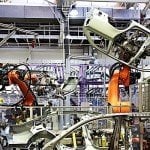Electrical Engineering is one of the top choices of students considering careers — even though Petroleum Engineer tops the base salary list. [See below for informaiton on the top 7 enginnering positions.]
Electrical Engineer is generally high income and remains a growth industry in most countries — seven percent job growth according to the Bureau of Labor Statistics (between 2016 and 2026.) Base pay is reasonable, although entry into a career is competitive with so many graduates each year. Median pay in the U.S. for electronics engineers — excluding computer — is higher at $102,700, but the median for electrical engineers is a very healthy $96,640.

Here are some useful stats for Electrical Engineer — probably the most in-demand career (Not the highest paid, however.) [1]:
- Median wage per hour US$47.63
- Base pay: $73,839 – $86,176 per year
- Median pay: $99,070 per year
- Entry-level education requirement: Bachelor’s degree
- Number of jobs (2016 data): 324,600
- Growth outlook (2016-2026: 7 percent
Engineering will always be in demand in the “job market” — with the U.S. market projecting an increase of 139,300 engineering jobs, especially over the next ten years, jumping to 1.82 million jobs from the current 1.68 million. Canada and the U.S. closely mirror proportionately. In Canada, the top 8 positions for 2019 will be:
- Electrical engineer
- Mechanical engineer
- Project engineer
- Civil engineering technician
- Manufacturing engineer
- Process engineer
- Engineering manager
- Quality assurance technician [2]

In Canada, the top 10% of Engineer earners bring in over $105,00 annually, while the median —across the various Engineering fields — is a healthy $75,000. Specialists and mature career engineers earn more. For example, Petroleum engineers have higher than average income and job prospects.
Top 7 for future-proofing your career
Projecting forward, based on demand and trends, some key fields are trending towards very hot for the next ten years (according to the U.S. Department of Labor)[1]:
- Software engineering: specifically data science and machine learning
- Automation and robotics engineer
- Petroleum engineer will sustain demand to the next ten years — with a 15 percent gain in jobs projected
- Civil engineering, set to grow by 10% by 2026 — starting salaries around $60,000, rising to $96,000 with the maturity of career
- Electrical engineering: among the highest wages for specialists, but even average electrical engineer salary is around $71,000
- Alternative energy engineering, set to grow by 6.5% in demand over the next ten years
- Mining engineer, especially with lithium, copper and nickel mining projected to grow, and a range of salaries between $68,000 and $109,000

Skills that are in demand 2019
The skills employers are looking for, depending on specialty are:
- Autocad experience is the number one skill employers demand
- Instrumentation and measurement skills, especially in the manufacturing sector
- QA (quality assurance) sills across all engineering fields.
- Autodesk Revit: for architects, structural engineers, designers
- Solidworks design software — used at 165,000 companies
- Languages: French particularly, for Canada
Certifications in-demand
In Canada, the top certifications for 2019 are:
- Structural Engineer (SE)
- Professional Engineer (P.Eng / PE)
- Engineer in Training (EIT)
- Certified Engineering Technologist (C.Tech / CET)
- Computer Aided Design and Drafting (CADD)
- Electronic Systems Technician (EST)
NOTES
[1] U.S. Department of Labour 2019
[2] Randstad “best engineering jobs in 2019.”
































